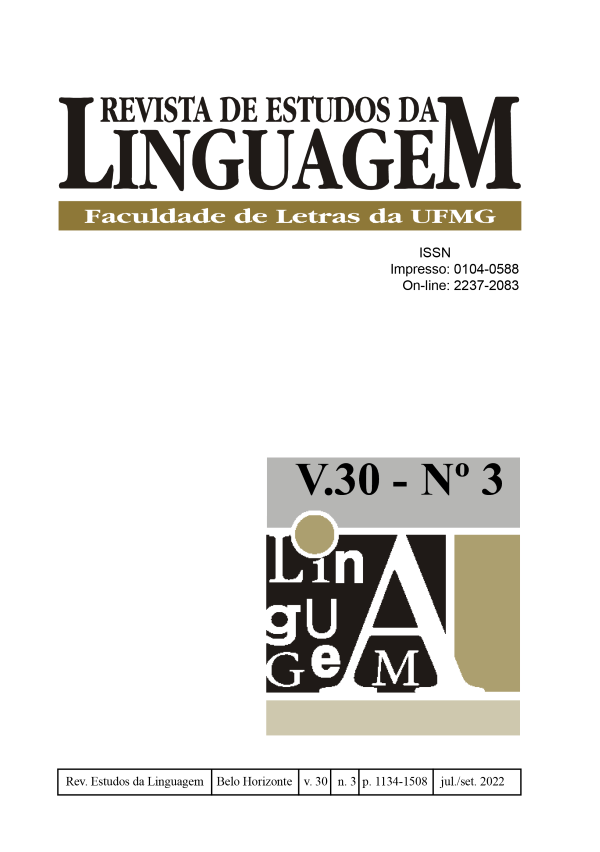Clauses Introduced by Cualquiera Under the Functional Discourse Grammar Point of View
DOI:
https://doi.org/10.17851/2237-2083.30.3.1339-1364Keywords:
cualquiera, Spanish, concessive-conditional clauses, Functional Discourse GrammarAbstract
This work investigates the clauses introduced by cualquiera, in Spanish, which are conceived among the improper concessive or concessive-conditional clauses by Haspelmath and König (1998) and Flamenco García (1999). These structures are categorized this way because they mix features of both conditional and concessive clauses. In order to reveal the functioning of these clauses, we assume the model of the Functional Discourse Grammar (henceforth FDG) by Hengeveld and Mackenzie (2008), with the purpose of describing the pragmatic and semantic motivations that are manifested in the morphosyntactic properties of these structures. For the selection and analysis of the occurrences of the written texts, we chose the CREA corpus (Corpus de Referencia del Español Actual), a database that provides texts of the varieties of Spanish from America and Spain. The results show that the sentences introduced by cualquiera can perform both a semantic function at the Representational Level and a rhetorical function at the Interpersonal Level. This result suggests a new look at the phenomenon under analysis, presented in the literature as a hybrid structure, since, in this study, they are conceived in a discrete way, in terms of functions.




 Esta obra está licenciada com uma Licença
Esta obra está licenciada com uma Licença 